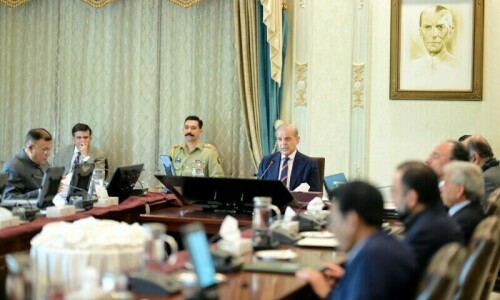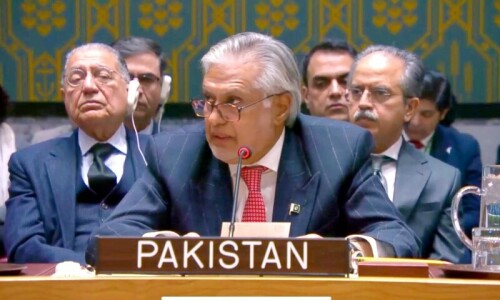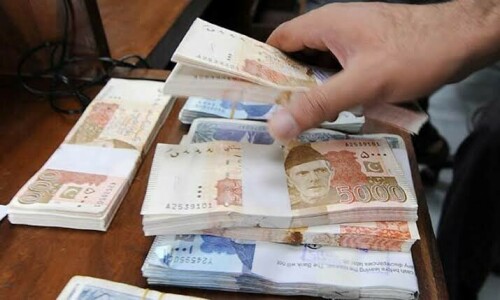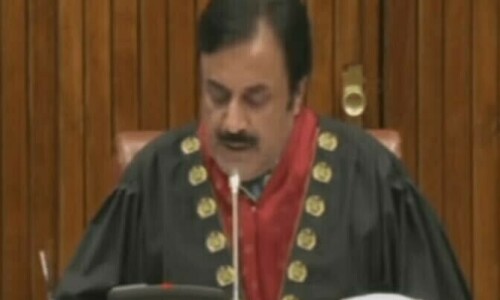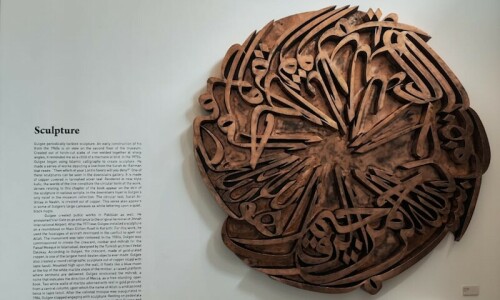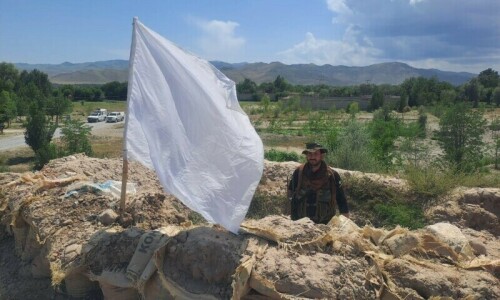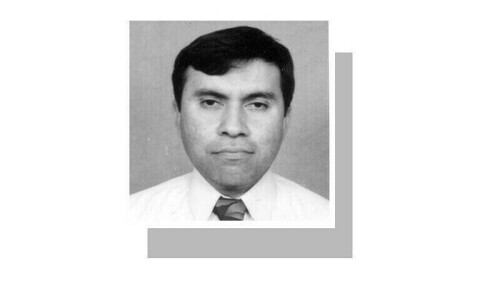ANKARA: Turkey’s Prime Minister Recep Tayyip Erdogan hopes to secure a place alongside Mustafa Kemal Ataturk in the pantheon of great and transformative Turkish leaders, but critics accuse him of undermining the legacy of the founder of the modern republic.
Erdogan, the favourite to win Sunday’s presidential election, repeatedly pays tribute to Ataturk who founded the modern Turkish state in 1923 in the wake of the collapse of the Ottoman Empire. Ataturk forged a system of government based on a strict separation between mosque and state.
Yet the values espoused by Erdogan, a pious Muslim who does not drink or smoke and whose wife wears the Islamic headscarf, seem for many to sit at odds with Ataturk, whose aura still dominates Turkish political life and whose image is on the wall of offices up and down the country.
Erdogan sees himself a successor to Ataturk — as well as the most successful Ottoman sultans — in that he has embarked on a drive to modernise the country straddling Europe and Asia, in particular with a hugely ambitious infrastructure programme.
Know more: Erdogan holds mass election rally in Istanbul
Premier since 2003, Erdogan has confronted Turkey’s coup-filled past head-on and succeeded for the first time in curbing the influence of the military, which had repeatedly stepped in over the years to prevent religious influences entering with government.
 |
| Abdul Hamid II and Yavuz Selim |
“Hundreds, thousands, millions of heroes from Alparslan to Fatih [the conqueror], from Kanuni [Suleyman the Magnificent)] to Yavuz Selim, from Abdulhamid to Mustafa Kemal wrote the history of this nation, not the coup makers,” he said last year, reciting the names of Turkish sultans going back to the Selcuk period in the 11th century.
Erdogan is clearly eyeing a legacy which will cement his place in history by building Turkey’s first national high-speed train network, a third bridge over the Bosphorus and a gigantic third airport in Istanbul.
These projects are part of a drive named “Target 2023”, the year when Turkey marks the 100th anniversary of its founding by Ataturk. Erdogan apparently has every intention of still being in power when that date comes.
‘Longing for the caliphate?’
Faruk Logoglu, deputy head of the secular opposition CHP party — founded by Ataturk — said a long-serving leader like Erdogan would find his place in history but would leave behind a chequered legacy.
 |
| Suleyman the Magnificent |
He predicted that if elected, Erdogan’s “assertive” presidency would steer Turkey into uncharted waters at home and abroad.
“Religion-oriented policies will find more room, democracy will decline, freedoms will stand back,” he said.
“Erdogan has been longing for the caliphate somewhere in his heart, even though it’s not declared. He will use the presidency as a tool to become the leader of the Muslim world.” The premier was shaken when the secular urban middle-class held mass protests last year, underlining the extent to which they feel alienated by his rule.
Fiercely unrepentant, Erdogan vowed that his party would not retreat from the path of modernity promoted by Ataturk and said there would be a “new Turkey” by 2023.
But a number of controversial policies including a ban on overnight sales of alcohol have resurrected fears that Erdogan’s ruling AKP, which has roots in political Islam, has a hidden agenda to Islamise the country and destroy Ataturk’s legacy.
‘Erdogan’s mixed legacy’
Soner Cagaptay, director of the Turkish Research Programme at The Washington Institute, said the Turkish leader had succeeded in creating a majority middle class society and transforming the country economically.
“But I think he will also go down in history as the person who did not transform the country politically and socially at the same time, in the sense that Turkey has become a middle-class society but it doesn’t have the liberal democracy that fits a middle-class society,” he said.
If he becomes president, it remains to be seen whether the famously combative Erdogan will take a conciliatory tone towards secular Turks and avoid the increasingly polarised politics of recent years.
“Nobody disputes Erdogan’s legitimacy as an elected leader but they want a more inclusive governance geared up for an independent judiciary, pluralistic media and strong civil society like in Western democracies,” said Sinan Ulgen, visiting scholar at Carnegie Europe in Brussels.
“Erdogan’s legacy will be measured to what extent he radiates trust and embraces various segments of society as president. This cannot be done only with grandiose infrastructure projects,” he said.—AFP
Published in Dawn, August 5th, 2014




